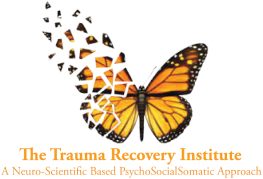17 Aug Love Rewires Our Brain
There are several neurotransmitters that seem to be involved in novelty. Dopamine is often spoken of and aspects of norepinephrine are involved in novelty, too. But basically, what happens in life is that if you keep doing the same thing of any kind, your dopamine chemistry is not being triggered. Sometimes, when you hear people complaining about monogamy as being boring, it’s not that their mate is boring, it’s just that there’s a certain amount of routine involved in monogamous relationships or long- term, steady relationships. It’s good to know about that and learn how to manipulate your dopamine to some degree. You should pay some attention to the fact that if you want to maintain a long-term relationship, you’re going to have to do certain things to inject some novelty into it. People – and I am not inventing this – who are very good at love know how to do this. Part of the reason you might want to go on vacation is to be with your beloved in a totally new situation – a new place where you’re both doing a lot of learning. It’s turning on that dopamine chemistry that’s allowing you to discover new things in the beloved. Probably that is what a new suit and a new dress is about, too. So, again, this is just part of knowing about the “Users’ Guide to the Brain” – just knowing about the art of life and that your brain evolved to learn. It is not just for learning – it is for self-regulation, too. The brain has to be learning to feel fit. So you always have to be learning new things, and even within the context of a relationship, I think you have to be learning together to keep that relationship feeling really vital.
So, here’s the question: What does your partner usually complain about that bothers him/her about what you do again and again? This is just one way of changing up the relationship. There are three ways, or areas, which you can change. Change the viewing (and that, I think, connects to mindfulness). If you notice something new about your partner, it increases the satisfaction – your satisfaction and your partner’s satisfaction. “Wow, I never noticed that your hair goes like this…” Change how you’re used to seeing someone. “That’s a different blouse you’re wearing today.” Or, “That’s interesting.” Or, “You got up at a different time.” Just view any change that they have made – really notice it rather than thinking, “Oh, that’s my partner, I know what they do, I know how they are.”
It’s all about changing the viewing, changing the doing, and changing the context. Dr. Doidge talks about going on vacation – but there are many ways of changing the context. You could rearrange the furniture in your house and that might change your interactions because you’ve been used to sitting in certain places – now, all of a sudden, this changes things. Small changes just increase the interest and make a difference in the relationship so you don’t fall into those ruts.
Joan Borysenko: Dr. Doidge makes such an interesting point here about the need to continue to trigger high levels of dopamine because that gives us pleasure, keeps the relationship alive. I’ll give you a personal example: I am not a cowboy boot kind of girl, but my husband loves cowboy boots and country dancing. So now, I have three pairs of cowboy boots. I know how to do the two-step and we go out from time to time for country dancing. That means I have an interest in something he has, but it’s still a novel thing we do together. The question I would ask, first of all, is this: What are your partner’s hobbies? Is there something that, if you just give yourself over to it and try, that you could love and join him/her in doing? The second suggestion would be this: Is there a hobby that, in fact, the two of you can take up together? That can add a tremendous amount of novelty and excitement to life. Also, it just takes you outside the bounds of your normal context.
(and Other Romantic Secrets of Brain Chemistry) By Norman Doidge, MD, PhD Joan Borysenko, PhD Bill O’Hanlon, MS, LMFT
Tantra workshops at Embodied Tantra Ireland
Embodied Tantra Ireland, empowering you to thrive in love, sexuality and intimacy. Embodied Tantra is living with an awareness in the moment through the body in an intimate connection with self, others and all that is. This allows you to have more choice, and to access more of what you are capable of, including pleasure, love, Intimacy and healthy attachments. Embodied Tantra groups and workshops are very powerful , safe, empowering, informative, psychoeducational, psychotherapeutic and liberating. Embodied Tantra is suitable for people at all levels including complete beginners of Tantra practise. Embodied Tantra is a dive deeper, a tantra workshop with difference, where not only will you learn tools for living intimately but get an opportunity to work through any blocks you have to intimacy and is perfect for anybody looking to create a healthy relationship with strong boundaries, communication, intimacy, connection, love, happiness and passionate love making.
“Tantra is not technique but prayer. Is not head oriented but a relaxation into the heart. Please remember it. Many books have been written onTantra, they all talk about technique but the real Tantra has nothing to do with technique. The real Tantra cannot be written about, the real Tantra has to be imbibed(absorbed). How to imbibe real Tantra? You will have to transform your whole approach.” Osho


Sorry, the comment form is closed at this time.